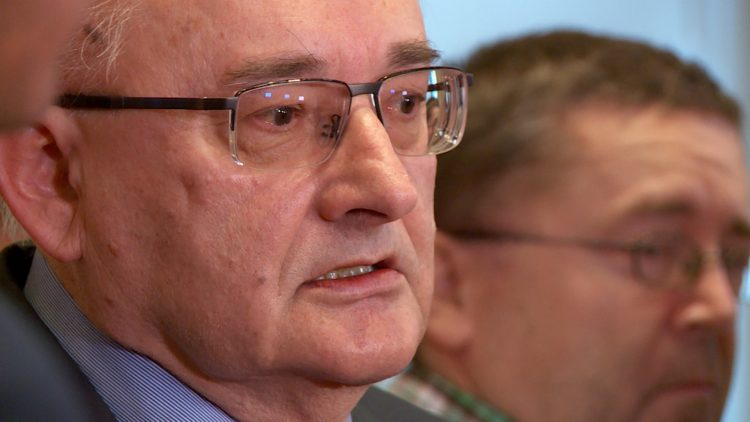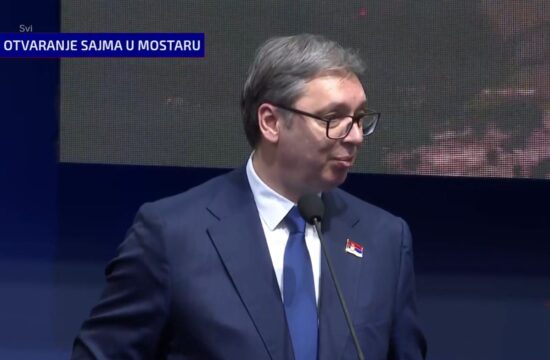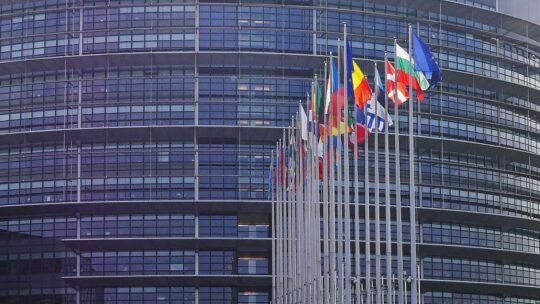
Croatia has the right to demand the changes to Bosnia's Election Law, which would enable election of legitimate representatives for each of the three major ethnic groups in that country, Bosnian Croat politician Bozo Ljubic told N1.
“For several election cycles Croats did not manage to be represented by their legitimate representatives in the entity governments and the Presidency of Bosnia and Herzegovina,” said Ljubic.
According to him, this was a reason enough for Croatia to declare on this matter as one of the signatories of the Dayton peace treaty, a document which ended the 1992-95 war in Bosnia and established a complex power-sharing administration system in the country.
Ljubic's statement came as a response to a letter that three former international envoys in Bosnia sent to the European Union (EU) top officials. According to him, they had no credibility to speak about this matter and were the ones to blame for this situation.
Carl Bildt, Christian Schwarz-Schilling and Paddy Ashdown warned last week that Croatia was meddling in Bosnia's internal affairs and asked the foreign ministers of the EU member states to tell Croatia to stop that.
“As former High Representatives to Bosnia and Herzegovina, we are deeply concerned by Croatia's continued meddling in the political affairs of Bosnia and Herzegovina,” they said in the letter, referring to “the misinformed narrative” about a court ruling ordering the Election Law changes.
Without referring to the letter, the EU foreign ministers concluded in a discussion on Bosnia on Monday the country should finalise the post-election government formation as soon as possible, the EU head of diplomacy Federica Mogherini told a press conference following the meeting.
Bosnia's Constitutional Court ruled in 2016 upon Ljubic's motion that some parts of the Election Law were inconsistent with the Constitution. Although the court set a clear deadline for the law to be amended, political disagreements caused that the law parts treating specifically the selection of delegates in the House of Peoples of Bosnia's Federation (FBiH) entity have not been changed to date.
Although the court's decision did not treat the election to the state tripartite Presidency, the ethnic Croats in Bosnia often used it as an argument to emphasise that such law enables one ethnic group to elect a Presidency member to another.
The issue was particularly problematised by the nationalist Croat Democratic Union (HDZ BiH) and its leader Dragan Covic, who lost in the run for the state Presidency this year to a left-leaning candidate, Zeljko Komsic.
Covic blamed the current legislation for the loss, claiming that Komsic's win, although in line with Bosnian law, was illegitimate and that he was elected mostly owing to the votes of the other major ethnic group, the Bosniaks.
However, the former High Representatives, who were in charge of overseeing the implementation of the Dayton peace treaty, Bosnia's Constitution that is, warned the way HDZ BiH and some of Croatia's officials interpret the ruling in the Ljubic case was wrong.
“The HDZ representatives from Croatia, together with Dragan Covic, the leader of HDZ BIH, claim that the election of Komsic was illegitimate and unconstitutional. Yet neither the Constitution nor the Election Law of Bosnia and Herzegovina state that presidency members must be elected by members of their ‘own group’,” said the former envoys.
Miroslav Lajcak, also a former High Representative in Bosnia and current Slovakia's Foreign Minister, was not invited to sign the letter as he is currently acting as one of the EU member states’ foreign minister.
He thinks the issue is being politicised and that this is detrimental to the Croats in Bosnia.
“We all have to work on making them feel equal, to feel that they are represented and that they have no problems they obviously are facing now,” said Lajcak.

According to him, Komsic's win in the election was in line with the letter of the Dayton-based Constitution but not in line with its spirit.
“It is the fact that he was elected owing to the votes of non-Croats in Bosnia and Herzegovina and, as a result, the Croats in Bosnia and Herzegovina don't feel they have their own member in the Presidency. That's the fact,” said Lajcak.
Bosnia consists of two semi-autonomous entities, the Federation (FBiH) that is shared by Bosniaks and Croats, and Republika Srpska (RS), dominated by Serbs. While the Election Law stipulates that the Bosniaks and the Croat members are elected in the FBiH, there is no law provision banning the Bosniaks from voting for a Croat member or the other way round. The Serb member in the Presidency is elected from RS entity.




